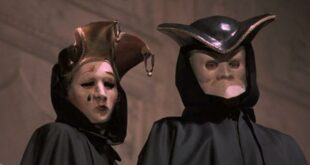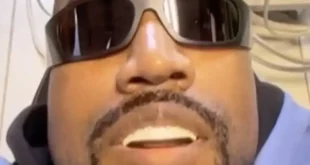Edmund Connelly
Occidental Observer
November 11, 2014

In Gentleman’s Agreement, a novel about social anti-Semitism. Not surprisingly, the Jewish-owned New York Times featured a book review which called it “required reading for every thoughtful citizen in this perilous century.”
Within months, a polished film version starring Gregory Peck was released (this film too failed to mention the Holocaust). In addition to taking home Best Picture for that year, it also won Best Supporting Actress and Best Director, along with a slew of nominations. The same year also saw Crossfire, another film about anti-Semitism.
For a variety of reasons, the theme of anti-Semitism largely disappeared from movie screens after this, emerging only sporadically in films of the late sixties. When it did reappear, it was as a tangential subplot, though still obvious and important. For instance, Woody Allen inserted such a scene into Annie Hall (1977), which a film critic described thus:
The difference between Annie’s background and Alvy’s upbringing is brought into sharp relief in this short but memorable scene juxtaposing a dinner with Annie’s family and a meal chez Singer. The split-screen scene illustrates the huge gulf between the two cultures, both of which are ridiculed. Allen’s comic condemnation of both exaggerated extremes pits the stifling, superficial Halls, who quietly speak about swap meets as they pick at their skimpy meal and sip cocktails, against the vulgar, emotional Singers, who gobble a vast dinner as they argue loudly. Although Alvy may be embarrassed by his uncouth family, he shows even greater disdain of the cold, repressed, bigoted Hall clan. Annie’s brother Duane, played by Christopher Walken, is actually psychotic, and a mean-faced Grammy Hall is blithely described by Annie as “a real Jew hater.”
Then in the 1982 hit Porky’s there is a subplot that has newcomer Brian Schwartz bullied and challenged to a fight by Tim, one of the Porky’s gang. Losing the fight to a Jew, Tim is berated by his father, Hollywood’s stock Southern redneck, who himself picks a fight with teenage Brian. Ashamed, Tim intervenes and beats up his own father, thereby becoming Brian’s friend. Asked to explain his physical prowess, Brian says, “When you’re Jewish, it’s either fight or take shit.”
Two other teenage films featured battles against anti-Semitism, one set on the East Coast, the other on the West Coast. In The Karate Kid (1984), young Daniel moves from New Jersey to California, where he crosses paths with a blond thug who trains at the local karate school. Aided by Okinawan karate expert “Miyagi-san,” he prevails over the gentile.
In School Ties (1992), Brendan Fraser’s character David is the son of a Jewish laborer. Against stereotype, he excels at football. When he enrolls in an elite prep school to play ball, he encounters the anti-Semitism he had feared. Despite his attempts to hide his ethnicity, a jealous gentile classmate discovers his secret and makes trouble for him, though David prevails in the end.
Possibly the most dramatic cinematic presentation of anti-Semitism comes in the 1998 Edward Norton film American History X. Within the first few minutes we are treated to a slick and chilling display of celluloid white racial animus. Norton’s neo-Nazi Derek is upstairs in the family home, aggressively fornicating with his neo-Nazi girlfriend. At the head of the bed is a scarlet banner featuring a large black Nazi eagle and swastika. Highlighted to the right of the banner is a prominent crucifix.
Alerted by his younger brother Danny to the presence of an African American male with a gun on the front porch, Derek throws off the covers and sits up, revealing a glistening black swastika tattooed onto the left half of his hairless chest. With black goatee and other black tattoos about his torso, he represents a threatening imagine indeed, particularly when he arms himself with a pistol.
Looking out the peephole in the front door, he sees the young African America. Steeling himself for the assault, he throws open the door and guns down the black man. Another black tries to escape, but Derek shoots him as well. When the third young black male arrives in the car stolen from Derek, Derek shoots at him but misses. Later in the film, we find out that the second black male was only wounded, but this elicits no sympathy from Derek. Though the man lies helpless on the ground, Derek drags him to the hard concrete curb of the street. Then, in one of the most gruesome scenes of the movie, he places the black youth’s teeth on the curb and stamps his brains out from behind. The sickening thud leaves an unforgettable impression.
At school, a Jewish history teacher is exasperated by young Danny’s desire to review Hitler’s book Mein Kampf. When this Jewish teacher, who has been dating Derek and Danny’s mother, comes to their home for dinner, Derek explodes, turning on the Jewish guest:
You think I’m gonna sit here and smile while some fuckin’ kike tries to fuck my mother? . . . I will fucking cut your Shylock nose off and stick it up your ass before I let that happen. Coming in here and poisoning my family dinner with your Jewish nigger-loving hippie bullshit. Fuck you! FUCK YOU! Yeah, walk out, asshole. Fuckin’ kabbalah-reading mother fucker. Get the fuck out! See this [he displays the swastika on his chest]? That means NOT WELCOME.
One might be forgiven for wondering how many California high school graduates knew the meaning of kabbalah in 1998 (unless they were closely following the career of singer Madonna at the time). The goal, however, was to create images of savagely anti-Semitic gentiles in America.
When rare instances of actually lethal anti-Semitism do occur, Hollywood wastes little time in dramatizing them. The 1984 murder of Jewish talk show host Alan Berg, for example, inspired two films which focused on the anti-Semitic motive for that murder. First, Debra Winger and Tom Berenger starred in Betrayed, (1988), a thriller in which Winger plays an undercover FBI agent seeking to infiltrate the wholesome-looking organization of Berenger’s middle Americans. Soon, however, she finds that Berenger is a bigoted killer engaged in a white supremacist conspiracy against blacks, Jews and gays. His anti-Semitism prompted him and his group to kill the Jewish Berg.
A similar story was next told by half-Jewish director Oliver Stone in his 1989 film Talk Radio, where Eric Bogosian starred in the role of a controversial and acerbic radio “shock jock who perpetually tormented his white Christian listeners in and around Dallas. In the end, he is gunned down by an anti-Semite, just as Berg had been gunned down in front of his Denver home.
a largely Jewish endeavor, television has done the same with anti-Semitism.
For example, The Mary Tyler Moore Show featured an episode on anti-Semitism, as did Adam-12, Rawhide, Bonanza, Bridget Loves Bernie, Mission Impossible, Our House, Little House on the Prairie, Ironside, L.A. Law, Picket Fences, Miami Vice, St. Elsewhere, and Beverly Hills 90210.
In perhaps no other popular series, however, did anti-Semitism figure as widely and consistently as it did on the various Archie Bunker shows. For instance, two scholars described an episode of Archie Bunker’s Place in which anti-Semitic vandals attack the synagogue of Archie’s partner Murray and his Jewish niece Stephanie. Next, “with Murray and Stephanie in attendance—the synagogue is firebombed. It is a frightening scene of shattered glass, smoke rising from extinguished fires, swastikas smeared on the doors, and a very scared Stephanie is shown.”
Arguing that fighting anti-Semitism also protects gentiles like Archie, as well as blacks and other minorities, the show ends with Archie going to the synagogue to volunteer his time in order to protect it. Yes, the theme of anti-Semitism has indeed been an oft-invited guest on American television.
As Ben Stein has shown, the image of gentile America is certainly that it is sick, violent and anti-Semitic, and thus deserving of replacement. The irony is that in fact gentile America has been among the most welcoming places Jews have ever lived, and intense anti-Semitism has been exceedingly rare. I’d like to explore that claim more in my next column.
Edmund Connelly is a freelance writer, academic, and expert on the cinema arts. He has previously written for The Occidental Quarterly.
 Daily Stormer The Most Censored Publication in History
Daily Stormer The Most Censored Publication in History


